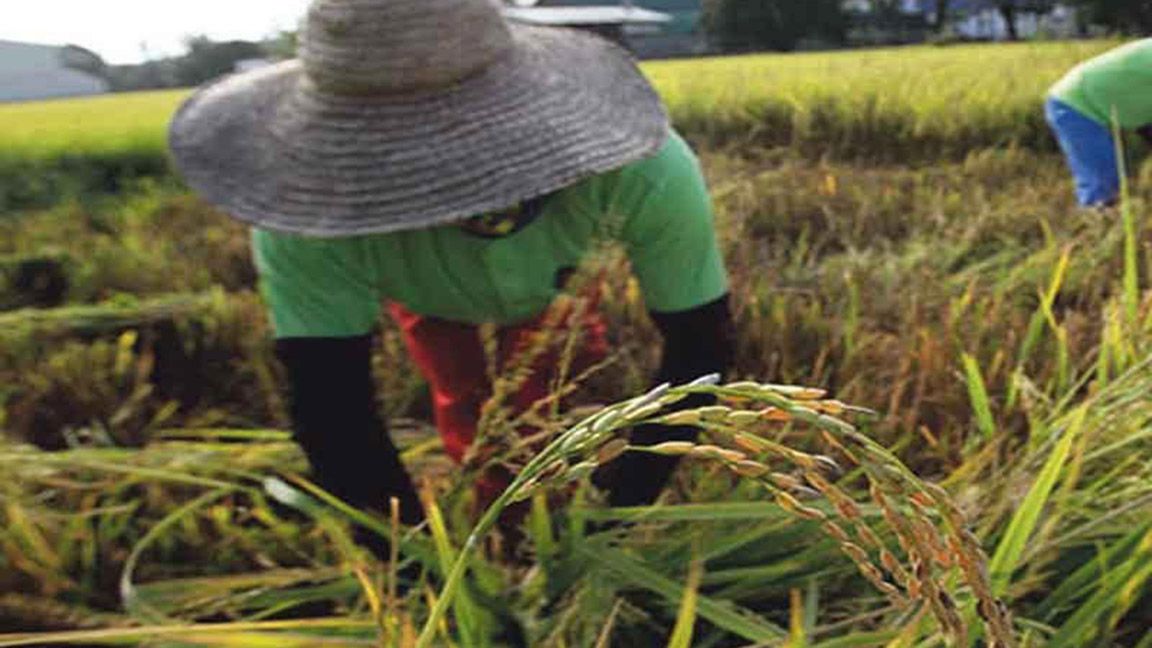The Department of Agriculture—after being called ‘mother of all smuggling’—is now trying to save image through a memorandum order that seeks to obligate importers to submit all unused import permits and utilization documents on their actual shipment as against their allocated quotas.
The submission of utilization reports—indicating actual volume of agricultural products imported by approved importers—will now be a requirement under the rules issued by the Department of Agriculture. This, after numerous Senate and Congress hearings have pointed to the mishandling and miscalculations of allowable import volumes to be shipped into the country.
Just recently, Rep. Joey Salceda of the House ways and means committee called the Department of Agriculture the “mother of all smuggling.”
DA Undersecretary and OIC Leocadio Sebastian issued Memorandum Order 31, which outlined measures to combat agricultural smuggling, such as the submission of utilization reports to the regulatory agencies—namely the bureaus of plant, animal and fisheries industries.
This early, however, Federation of Free Farmers (FFF) National Manager Raul Q. Montemayor questioned the DA’s decision to leave to the regulatory bureaus’ discretion the inclusion of the measures covering the importers’ utilization reports in the SPSIC (sanitary and phytosanitary import clearances) issuance process.
By practice, utilization reports can be ‘doctored’ when importers assign to a supposed sub-importer the volume of imports assigned to it. The report the importer submits may be factual in number but he was not the one that negotiated, bought and brought the shipment in the country.
“Why say ‘can be a requirement?’ It is discretionary on the part of the approving authority which often leads to corruption,” Montemayor told the BusinessMirror.
Full view requirement
The DA has also required all its concerned staff that business transactions with importers and brokers inside office premises shall be in “full view and within the hearing distance of other staff.”
MO 31 calls for the “immediate relief and reassignment of staff proven to have met with importers or brokers outside of office premises as indicated in a verified complaint.” In this internet age, physical transactions can be avoided.
MO 31 was addressed to Bureau of Plant Industry (BPI) Director George Y. Culaste, Bureau of Animal Industry (BAI) Director Reildrin G. Morales and Bureau of Fisheries and Aquatic Resources (BFAR) Director Eduardo B. Gongona.
Lapses exposed in hearings
Sebastian said the lapses in the DA’s process of issuing sanitary and phytosanitary import clearance (SPSICs) and inspection of imported agricultural products were revealed during a recent string of hearings conducted by Congress.
To date, the Senate Committee of the Whole, led by Senate President Vicente Sotto III, held three hearings while the House Committee on Ways and Means, led by Albay Second District Rep. Joey Sarte Salceda, conducted two hearings on the rampant smuggling of agricultural products in the country.
Sebastian noted the lack of monitoring on the utilization of SPCICs, lack of monitoring on the utilization of imported agricultural products as intended, allegations of corruption within the agency, absence of department staff during inspections, and improper application of rules and procedure in monitoring imported products.
“The above bureaus are instructed to implement measures within their respective mandate to address the above issues,” he said in the MO dated April 26.
Surrender unused SPSICs
The measures outlined in MO 31 include requiring importers to surrender their unused SPSICS upon expiration and reporting the actual volume utilized for each SPSICs issued to them.
MO 31 noted that these two measures “can be a requirement when processing new SPSIC applications of importers.”
“Inclusion as a condition in the issuance of SPSICs, the importer’s consent to unannounced visit to their storage facilities to ensure compliance with food safety and health requirements,” the memo said.
Staff assignments
Sebastian ordered the heads of the three regulatory bureaus to ensure that staff assignment to the Bureau of Customs’ (BOC) x-ray area is 24/7. The three bureaus must also conduct regular orientation, briefing and assessment of the performance of all staff involved in the quarantine and regulatory offices.
The three bureaus were instructed to come up with a “unified guideline on inspection, apprehension, investigation, appeal process and approval of decisions.” They must also automate their inspection, reporting and monitoring processes.
Data on outgoing shipments from source
Montemayor urged the DA to find a way to obtain data on outgoing shipments from source countries so that it can compare it real-time with the agency’s data on incoming shipments. He noted that the BOC has data on exporting companies, importing companies, and brokers.
“There is so much data that can be processed and analyzed if they only took the effort to do so given their manpower and resources,” he said.
“[The DA should] require all imports to submit proof of tariff payments before they are issued new permits and tighten screening of SPSIC applications to check whether they are just dummies or fly-by-night importers.”
Tags: #DA, #motherofallsmuggling, #documentarysubmissions, #smuggling, #agriculture
